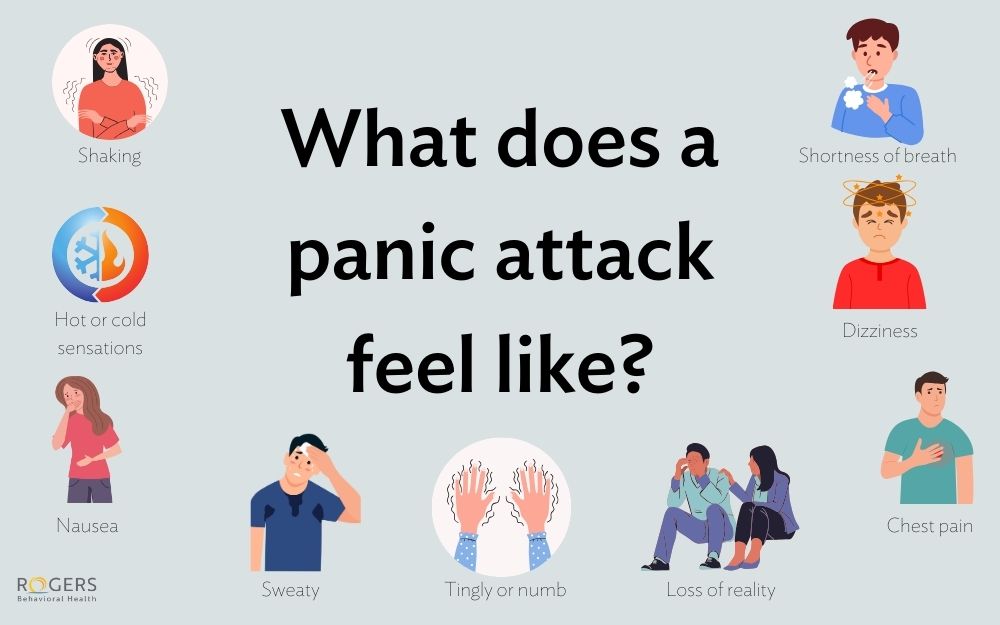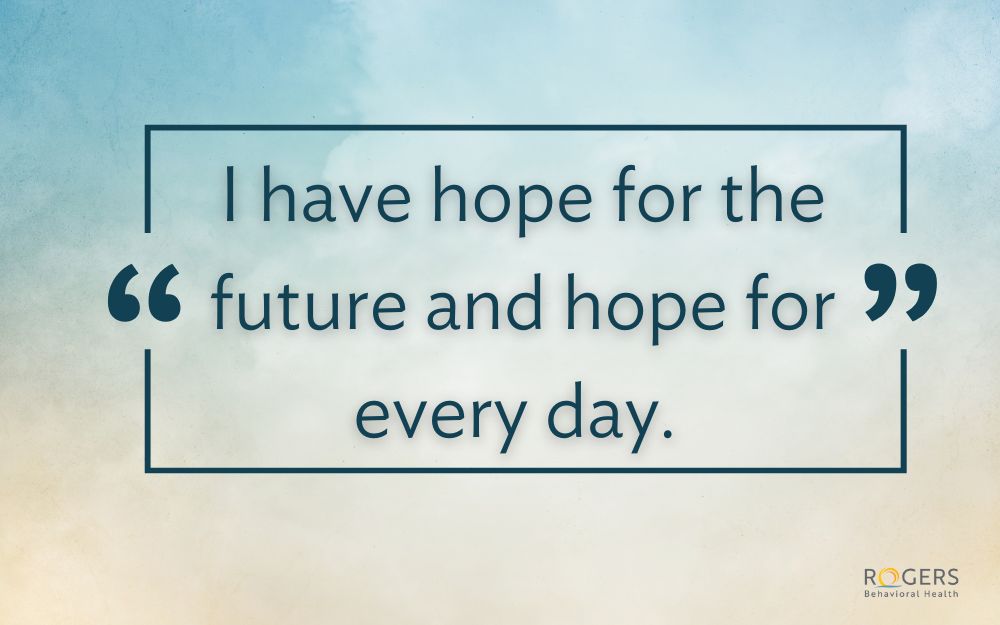Jill’s story: How evidence-based treatment transformed OCD’s harsh self-talk
Posted on 12/15/22 11:56:am
Share this article:
Jill says she’s always had a “Type A” personality.
“I was called a teacher’s pet, perfectionist, great student, and conscientious,” Jill says. “We associate all of those terms with young people who are often experiencing anxiety without understanding it, and they think to themselves, ‘I’m being praised for being like this, so it must be a ‘good’ thing.’”
Although she’s experienced anxiety for as long as she can remember, Jill says she didn’t understand that what she was feeling was abnormal.
“The only indicator I had that something was wrong as a kid was my mom being concerned,” she says. “She noticed tendencies of nervousness, hyperawareness, and perfectionism. Most weekdays, I had stomach aches before going to school. I’d be in the bathroom for half an hour, rubbing my belly in circular motions – until my skin turned warm and red – hoping this would ease the discomfort.”
Jill saw multiple outpatient therapists off and on in college and throughout her twenties. She kept thinking they weren’t the right fit. Leading up to 2020, Jill experienced several significant life events—back surgery, marriage, buying a home, changing jobs, and multiple health scares that would eventually lead to disordered eating, unintended weight loss and compulsive doctor visits. The arrival of the COVID-19 pandemic in March of that year only compounded her already heightened anxiety.
“My psychiatric nurse practitioner at the time prescribed a few different medications, but nothing was working,” she says. “She told me she was noticing obsessive-compulsive tendencies, and I was confused. I knew I had Generalized Anxiety Disorder, but like so many people, I thought OCD just meant cleaning all the time and feeling like everything has to be in its place.
She recommended Rogers. I asked her, if she were in my shoes, would she go or send her own child? And without hesitation, she said she would. I thought, this is someone who’s really listening to me, so I know I need to do it.”
In July of 2020, Jill started OCD and anxiety partial hospitalization treatment in Nashville through Rogers Connect Care.
“By the time I got to week 7 or 8, my behavior specialist started to talk about residential treatment,” she says. “He said I hadn’t progressed to where they would like me to be at that stage of the treatment, and he wasn’t wrong. Sometimes, I’d think I was making progress, but deep down. I knew I wasn’t, and that was evidenced by continued unintentional weight loss, insomnia, and racing thoughts. He really did save my life.”
Jill says going to OCD and Anxiety Adult Residential Care in Wisconsin was both the right decision, and the scariest.
“When I got there, I thought, 'I can’t be here. I shouldn’t be here. I don’t belong here,’” she says. “I was completely panicked and overwhelmed when I walked through those doors. But I saw there are other people like me who need more intensive treatment, and I slowly started to recognize that I really was sick and needed more intensive care.”
Despite her fears, Jill says she learned to accept the help. She credits Rogers’ evidence-based care, which includes dialectical behavior therapy (DBT), with teaching her how to turn destructive negative self-talk into self-compassion.
“If you told me two years ago that one day, I’d say that self-compassion actually works, I’d have laughed in your face,” she says. “But it really does. It’s being tender toward yourself and learning how to change, or at least challenge, your inner monologue if it’s getting mean or abusive. I named my OCD “Dolores” after the Harry Potter and the Order of the Phoenix character, Dolores Umbridge. She’s all about rules and punishment. I was constantly berating myself, and nothing I did or said was ever good enough. Personifying my OCD and separating it from ‘the real me’ proved useful for moving toward recovery.
Before learning about OCD at Rogers, she continues, I didn’t realize that negative self-talk could be a compulsion. Self-compassion taught me to say, especially in the face of the negative self-talk, ‘Hey, you’re doing the best you can. I’ve got you. I’m here holding you, even if you feel alone or unworthy of love and care.’”
After residential care, Jill returned to Nashville where she completed partial hospitalization and intensive outpatient treatment through Rogers Connect Care. As of today, Jill checks in with her current psychiatric nurse practitioner once every three months for medication management.
Jill describes life after Rogers as feeling like she can breathe and live again.
“Instead of avoiding the things that I used to really love and enjoy, I’m turning toward them, she shares. “The concept of ‘opposite action’ I learned at Rogers is really, really powerful. I now have an awareness of what an intrusive thought is, and I can see when those are coming in, even if it takes a minute. I have skills to challenge those thoughts, and instead of focusing on them and engaging with them, I can usually move on.”
Jill encourages anyone who may be struggling with OCD and anxiety to reach out for help.
“If you have hesitation, that could very well mean there’s a solid reason to do the opposite of what you’re feeling,” she says. “Of course I didn’t want to make that call to Rogers, but I really care about ‘my people,’ and I could sense that my mental health was negatively impacting them. I thought if this isn’t easy for me, then engaging with me in this disordered headspace must be hard or uncomfortable for them, too. Reaching out for help is an act of love toward yourself and the people around you.”
OCD and anxiety treatment at Rogers
If you’re concerned you or someone you love me be struggling with OCD and anxiety, Rogers is here to help with compassionate care in a growing number of communities nationwide. Schedule a free screening by calling 800-767-4411.







